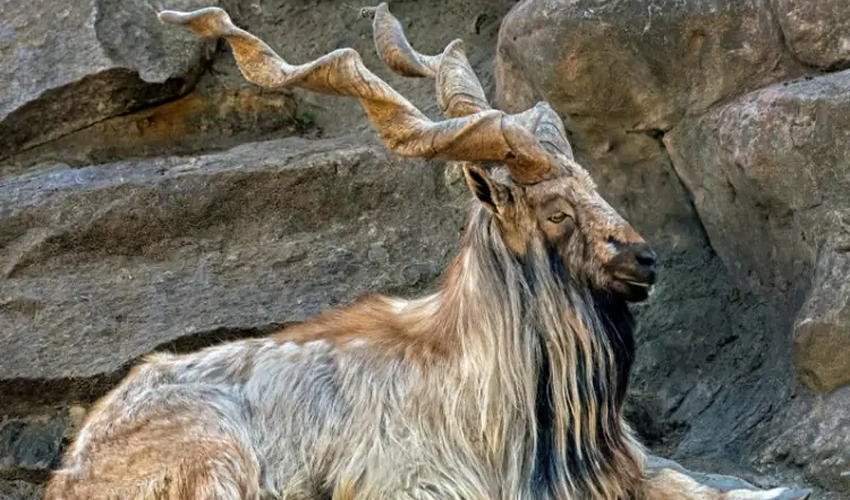The Astor markhor, a distinctive long-horned goat native to Pakistan, predominantly inhabits the snow-covered northern mountains.

The wildlife department of Gilgit-Baltistan (GB) auctioned permits for the trophy hunting of 104 endangered animals, with the highest permit, to hunt the rare Astor markhor, fetching a record $186,000, as confirmed by a wildlife department official.
The Astor markhor, a distinctive long-horned goat native to Pakistan, predominantly inhabits the snow-covered northern mountains. The substantial fee for this hunting permit ranks among the highest worldwide. Initiated in 1990 in GB’s Nagar Valley, the trophy hunting program has attracted international hunters, who contribute hundreds of thousands of dollars to target a limited number of wild animals in the region. Over time, the program expanded to various areas of GB.
Trophy hunting is a globally debated practice, involving the hunting of rare animals for sport and showcasing their parts as trophies. Conservationists argue that in northern Pakistan, this program serves as a deterrent to poaching and empowers local communities. Markhors typically reside at altitudes of 8,000-11,000 feet, descending to 5,000-6,000 feet during winter, coinciding with the hunting season.
Khadim Abbas, a conservator for GB’s wildlife department, stated, “We had four permits of markhors and the highest permit was auctioned today in the Kargah-Napura-Basin area [of GB] for $186,000.”
Officials note that 80% of the proceeds from the trophy hunting program are allocated to local communities, utilized for education, healthcare, and development initiatives. The hunting season runs from November 1 to April 25. For the 2023-2024 season, the GB government auctioned permits for four Astor markhors, 12 blue sheep, and 88 ibexes.
Abbas reported that the second-highest markhor hunting permit sold for $181,000, followed by another at $177,000. Additionally, eight international permits for blue sheep were auctioned, surpassing the base value of $9,000, with individual permits fetching between $26,000 and $35,000.
For Pakistani hunters, the highest price for a blue sheep permit reached Rs 1,800,000 ($6,440), while the top rate for hunting an ibex was Rs 1,100,000 ($3,935). Abbas confirmed that 80% of the funds collected through the permits would directly benefit local communities, with the remainder deposited in the national exchequer.
Dr. Salar Ali, head of the Department of Environmental Science at the University of Baltistan, emphasized, “The trophy hunting program is spreading awareness among locals and they are playing their best role to control illegal hunting of wild animals in their areas.”
He underscored that before the program’s inception, locals were unaware of the benefits provided by endangered animals. This, in turn, led to an increase in poaching activities. “Now, once they [locals] started to get income from this program, they are playing their role to protect these animals,” Ali concluded.